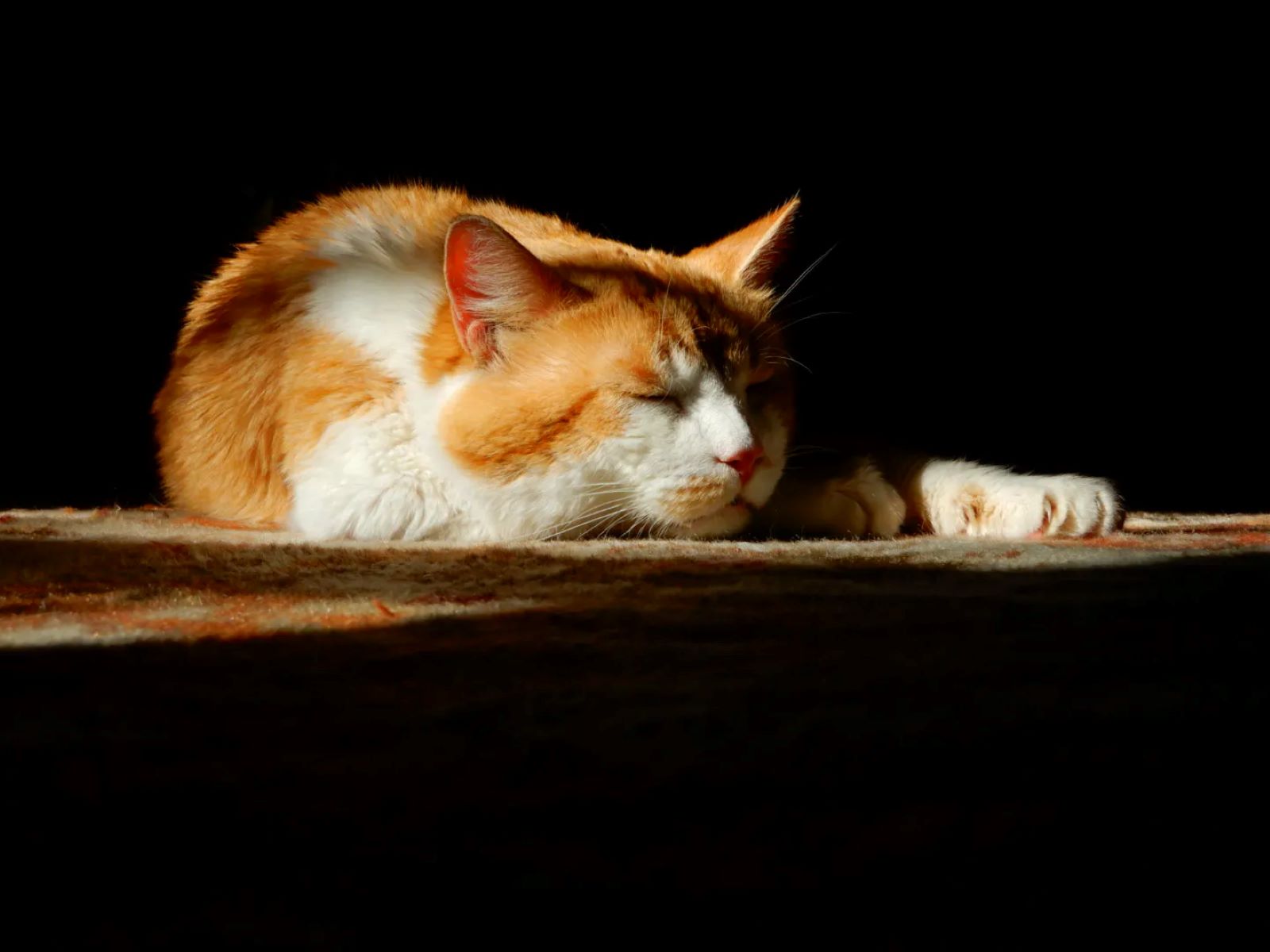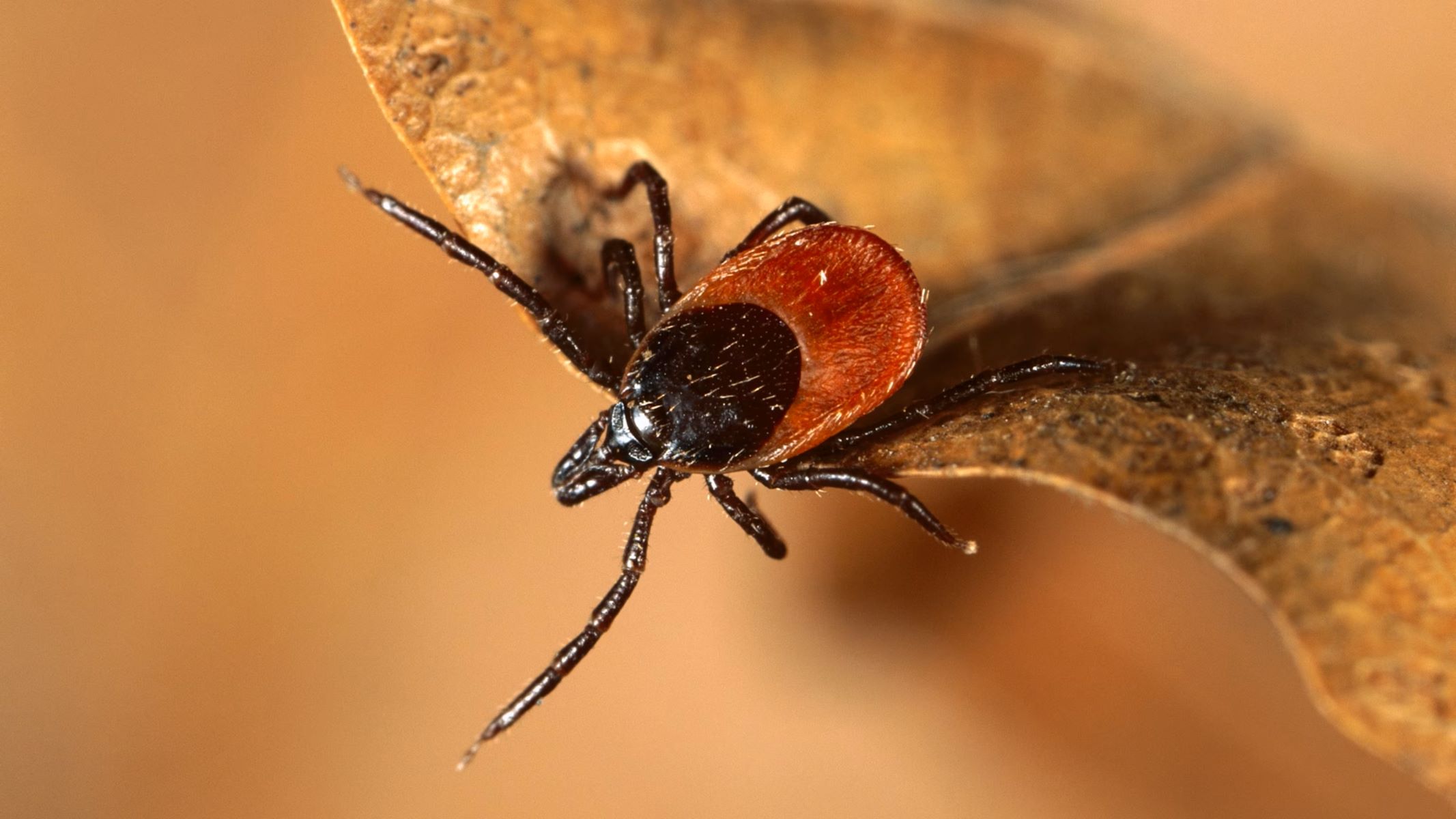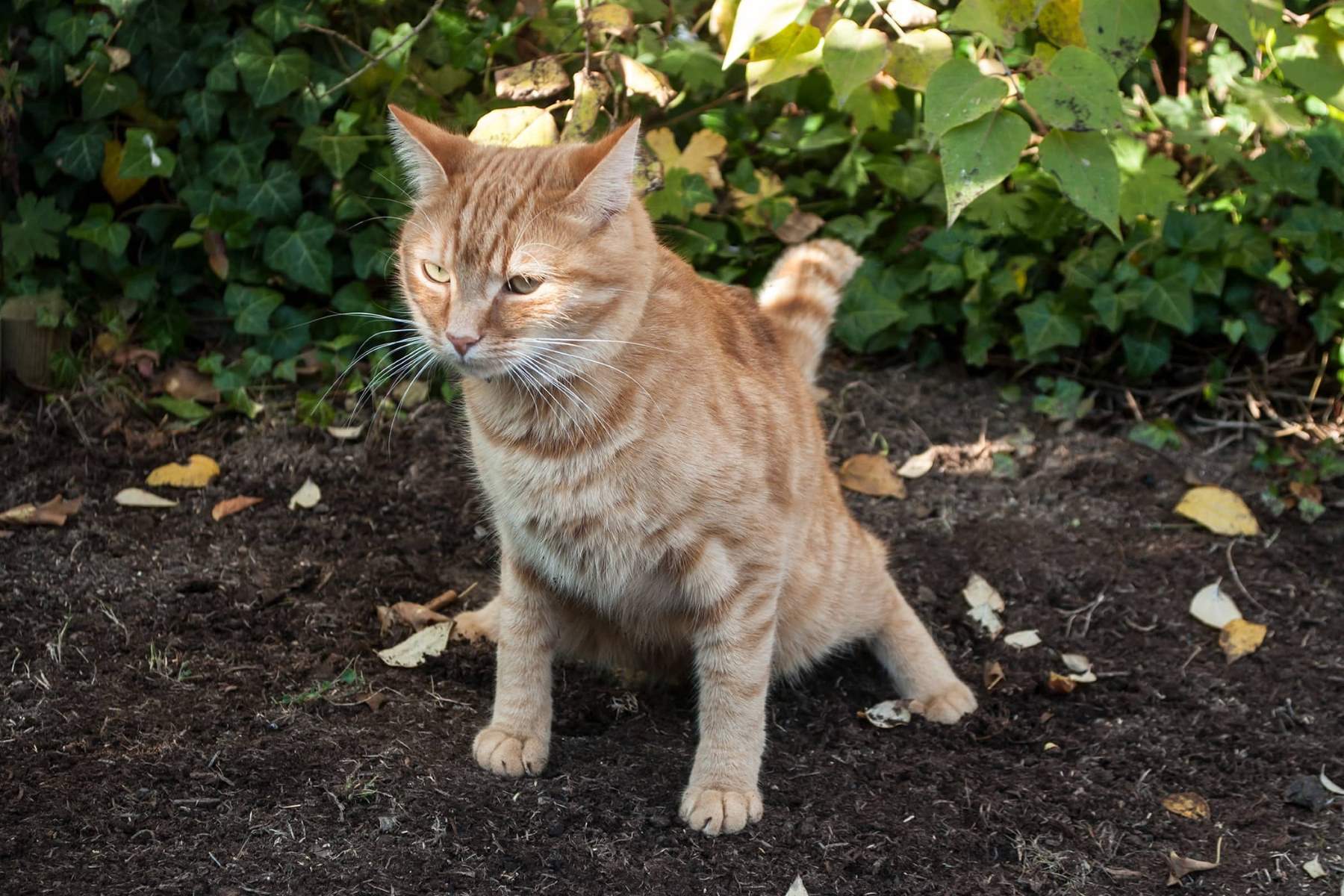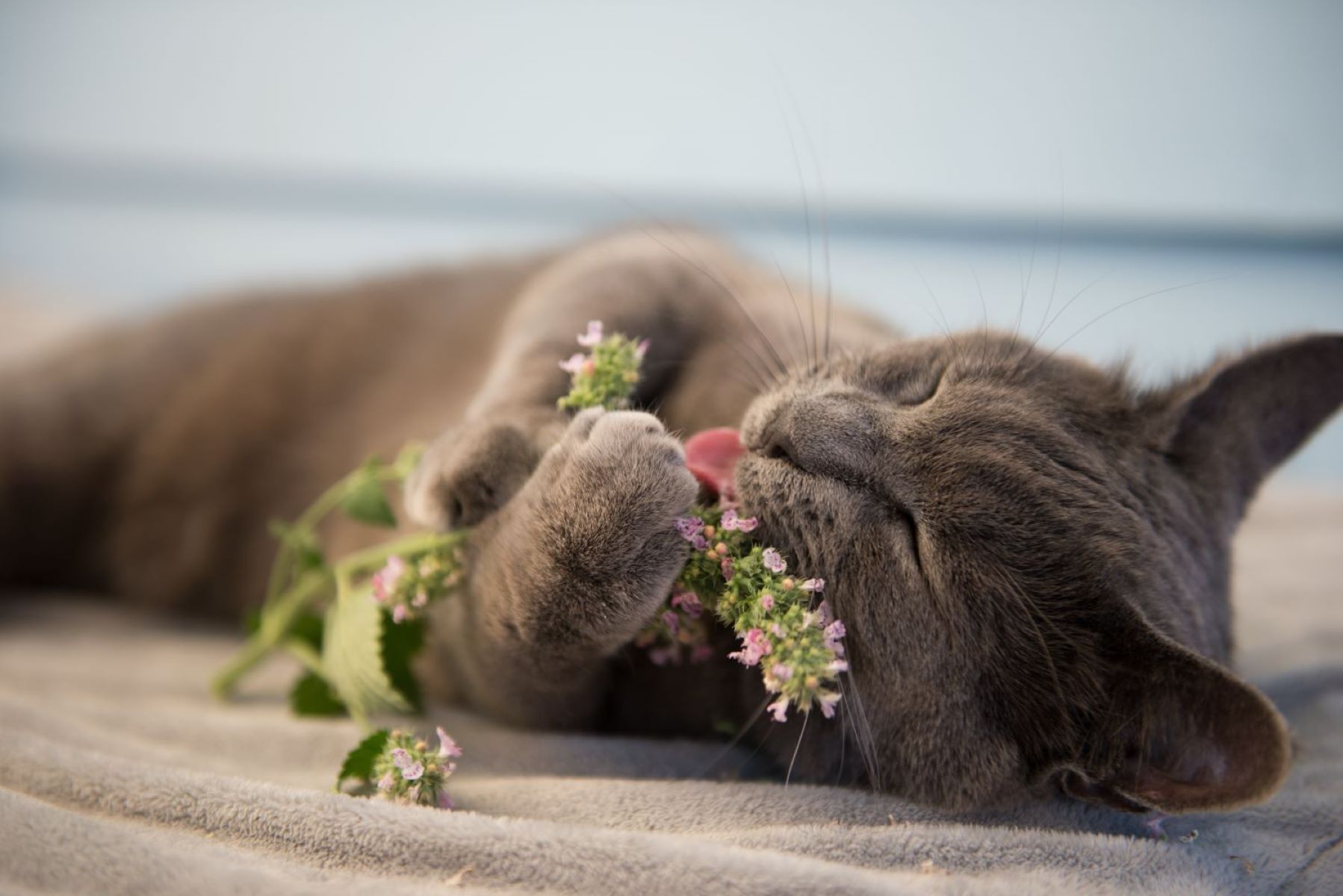Home>Health and Wellness>Shocking Side Effects Of Administering Human Melatonin To Cats!


Health and Wellness
Shocking Side Effects Of Administering Human Melatonin To Cats!
Published: February 6, 2024
Learn about the shocking side effects of administering human melatonin to cats and how it impacts their health and wellness. Understand the risks and ensure the well-being of your feline companions.
(Many of the links in this article redirect to a specific reviewed product. Your purchase of these products through affiliate links helps to generate commission for Regretless.com, at no extra cost. Learn more)
Table of Contents
Introduction
Administering human melatonin to cats can have unexpected and potentially harmful consequences. While melatonin is commonly used as a supplement for humans to regulate sleep patterns and address certain health issues, its effects on cats can be quite different. As a responsible pet owner, it's crucial to understand the potential risks and side effects associated with giving human melatonin to cats.
In the following sections, we will delve into the nature of melatonin, explore the reasons behind its administration to cats, and shed light on the potential side effects that can arise from this practice. It's important to remember that cats have unique physiological and metabolic characteristics that differ from those of humans. This means that substances like melatonin, which may be beneficial to humans, can have adverse effects on feline health.
By gaining insight into the implications of administering human melatonin to cats, pet owners can make informed decisions and prioritize the well-being of their beloved feline companions.
Read more: Shocking Side Effects Of Superdrol Revealed!
What is Melatonin?
Melatonin is a naturally occurring hormone that is produced by the pineal gland, a small gland located in the brain. It plays a crucial role in regulating the sleep-wake cycle, also known as the circadian rhythm, in both humans and animals. The secretion of melatonin is influenced by the body's internal clock, with levels typically rising in the evening as darkness falls, and declining in the morning as daylight increases.
In addition to its role in sleep regulation, melatonin also possesses antioxidant properties and is involved in modulating the immune system. This hormone is intricately linked to the body's response to stress, and it helps to maintain overall physiological balance.
Melatonin supplements are commonly used by humans to address sleep disorders, jet lag, and other conditions related to disrupted circadian rhythms. These supplements are available over the counter and are often perceived as a natural and safe means of promoting sleep and relaxation.
In the context of veterinary medicine, melatonin has been explored for its potential application in managing certain feline health issues. However, it's important to note that the use of melatonin in cats should be approached with caution, as their physiological response to this hormone can differ significantly from that of humans.
Understanding the fundamental nature of melatonin is essential for comprehending its potential impact when administered to cats. While it serves as a key regulator of sleep and various physiological processes in humans, the effects and implications of melatonin on feline biology may vary considerably. This underscores the importance of consulting with a veterinarian before considering the use of melatonin for cats, as their unique needs and sensitivities must be carefully considered.
By gaining a deeper understanding of what melatonin is and how it functions in the body, pet owners can make well-informed decisions regarding the use of this hormone in the context of feline health and well-being.
Why is Melatonin Administered to Cats?
Melatonin is sometimes administered to cats under the guidance of a veterinarian for specific health concerns. One of the primary reasons for considering melatonin supplementation in cats is to address behavioral issues, particularly those related to anxiety and stress. Cats, like humans, can experience anxiety and fear in response to various triggers, such as changes in their environment, loud noises, or separation from their owners. In such cases, melatonin may be recommended as a potential aid in managing these stress-related behaviors.
Additionally, melatonin has been explored for its potential application in addressing certain feline health conditions, such as alopecia (hair loss), seasonal flank alopecia, and sleep disturbances. In some instances, veterinarians may consider melatonin supplementation as part of a comprehensive treatment plan to support cats experiencing these issues.
Furthermore, melatonin has been studied for its potential role in managing feline dermatological conditions, including certain skin disorders and hair cycle abnormalities. Its antioxidant properties and influence on immune function make it an area of interest in veterinary medicine for addressing specific dermatological concerns in cats.
It's important to highlight that the administration of melatonin to cats should only be undertaken under the guidance and supervision of a qualified veterinarian. The dosage, frequency, and duration of melatonin supplementation must be carefully determined based on the individual cat's health status and specific needs. Self-medicating cats with human melatonin or any other supplements can pose significant risks and may lead to adverse effects on their well-being.
By understanding the potential reasons for administering melatonin to cats, pet owners can gain insight into the circumstances under which this hormone may be considered as part of a feline health management plan. However, it's essential to reiterate the critical importance of consulting with a veterinarian to ensure the safe and appropriate use of melatonin in cats, taking into account their unique physiological and behavioral characteristics.
In summary, the decision to administer melatonin to cats should be based on a thorough assessment by a veterinarian, considering the specific health concerns and individual needs of the feline patient. Pet owners should prioritize the well-being of their cats by seeking professional guidance before considering the use of melatonin or any other supplements.
Potential Side Effects of Administering Human Melatonin to Cats
When considering the potential side effects of administering human melatonin to cats, it's crucial to recognize that cats have unique physiological and metabolic characteristics that differentiate them from humans. While melatonin is generally considered safe for human use, its effects on feline biology can be unpredictable and, in some cases, harmful. Pet owners should be aware of the following potential side effects associated with giving human melatonin to cats:
-
Gastrointestinal Disturbances: Cats may experience digestive issues such as vomiting, diarrhea, or decreased appetite after being given human melatonin. These gastrointestinal disturbances can disrupt the cat's normal eating patterns and lead to discomfort and dehydration.
-
Central Nervous System Effects: Human melatonin can potentially affect the central nervous system of cats, leading to symptoms such as disorientation, lethargy, or changes in behavior. Cats may exhibit signs of drowsiness or altered activity levels, which can be concerning for pet owners.
-
Hormonal Imbalance: The administration of human melatonin to cats can disrupt their natural hormonal balance, potentially impacting reproductive hormones and other physiological processes. This imbalance may have long-term implications for the cat's overall health and well-being.
-
Allergic Reactions: Cats can be sensitive to certain compounds present in human melatonin supplements, leading to allergic reactions such as skin rashes, itching, or swelling. These allergic responses can cause discomfort and distress for the affected feline.
-
Drug Interactions: Human melatonin may interact with other medications that a cat is taking, leading to unforeseen complications or reduced effectiveness of concurrent treatments. This underscores the importance of consulting with a veterinarian before introducing any new supplements to a cat's regimen.
It's essential for pet owners to understand that the potential side effects of administering human melatonin to cats can vary based on individual feline sensitivities and overall health status. Additionally, the dosage and formulation of human melatonin may not align with the specific needs of cats, making it crucial to exercise caution when considering its use in feline companions.
In light of these potential side effects, pet owners are strongly advised to seek professional guidance from a veterinarian before contemplating the administration of melatonin or any other supplements to their cats. Veterinarians can provide tailored recommendations and alternative approaches to address feline health concerns, ensuring the safety and well-being of the beloved pets.
By being mindful of the potential side effects and consulting with veterinary professionals, pet owners can make informed decisions that prioritize the health and happiness of their feline companions.
Conclusion
In conclusion, the practice of administering human melatonin to cats carries significant risks and potential adverse effects that can impact the well-being of feline companions. While melatonin is widely recognized for its role in regulating the sleep-wake cycle and addressing certain health concerns in humans, its effects on cats can be unpredictable and may lead to gastrointestinal disturbances, central nervous system effects, hormonal imbalances, allergic reactions, and potential drug interactions. These implications underscore the importance of exercising caution and seeking professional guidance from a veterinarian before considering the use of melatonin or any other supplements for cats.
It is essential for pet owners to prioritize the safety and health of their feline companions by consulting with veterinary professionals to address behavioral issues, anxiety, stress, or specific health conditions. Veterinarians can offer tailored recommendations and alternative approaches that are better suited to the unique physiological and metabolic characteristics of cats. By seeking professional guidance, pet owners can ensure that the well-being of their cats is safeguarded and that any interventions align with the feline patients' specific needs and sensitivities.
Furthermore, the potential side effects of administering human melatonin to cats serve as a reminder of the importance of responsible pet care and informed decision-making. Pet owners should refrain from self-medicating their cats with human supplements and instead prioritize regular veterinary check-ups and open communication with veterinary professionals. This proactive approach can help identify and address feline health concerns in a safe and effective manner, ensuring that cats receive the appropriate care and support they need to thrive.
In summary, the administration of human melatonin to cats should be approached with caution and under the guidance of a qualified veterinarian. By recognizing the unique biological differences between humans and cats and prioritizing professional oversight, pet owners can make informed decisions that support the health, comfort, and happiness of their beloved feline companions. It is through responsible pet care and collaboration with veterinary professionals that the well-being of cats can be effectively safeguarded, promoting a fulfilling and healthy life for these cherished pets.















